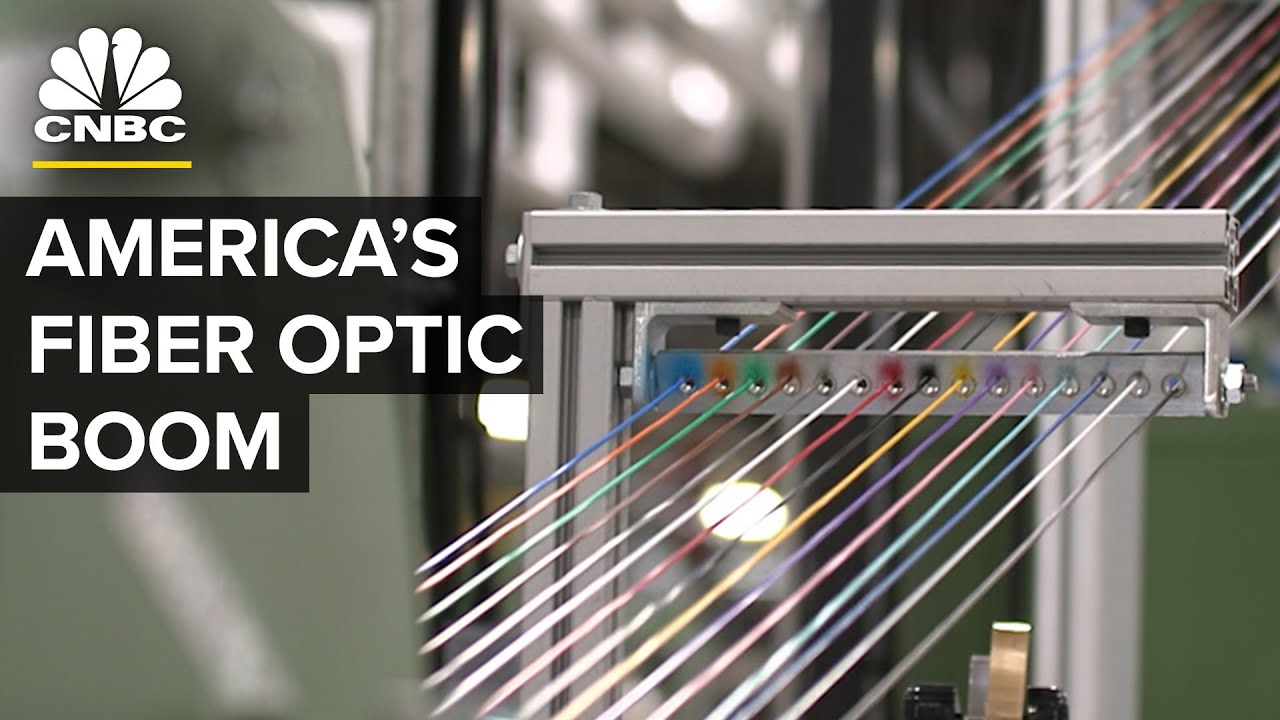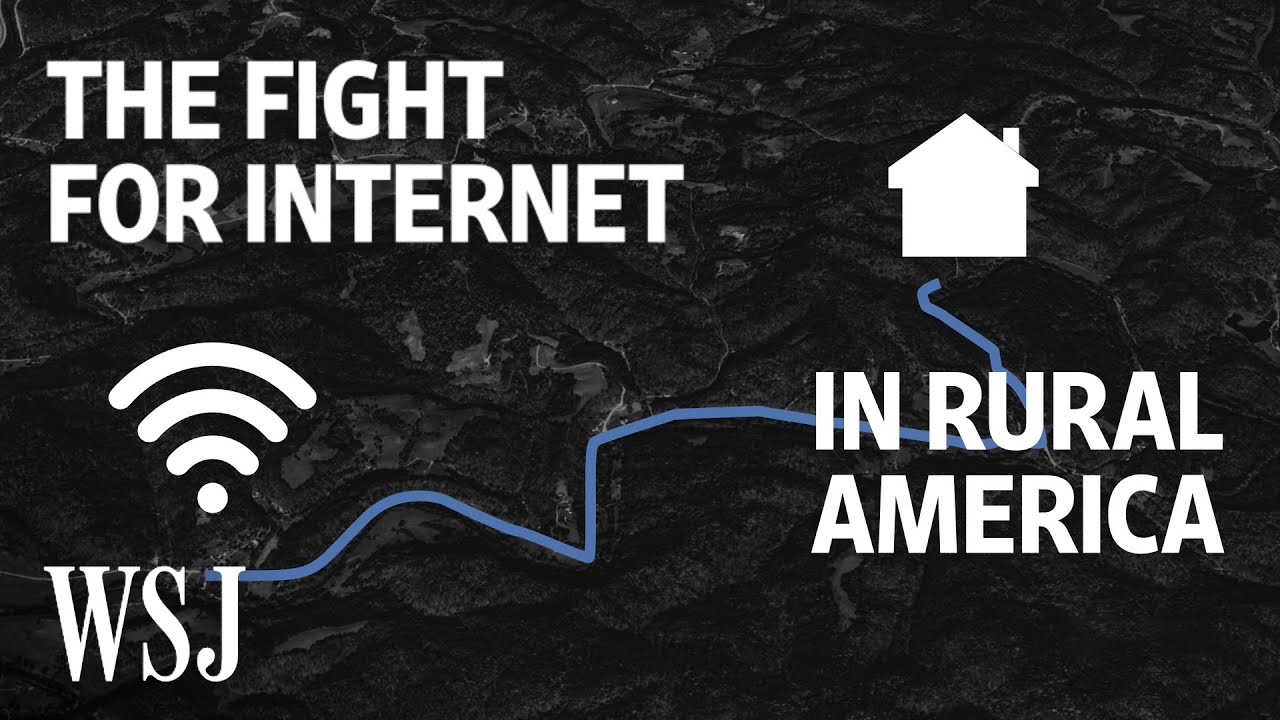SATELLITE • APRIL 22ND 2023
Satellite Broadband & HDTV Services in the USA
If you've been looking for a reliable and fast internet connection along with the best quality HDTV, then look no further than satellite broadband services. Satellite broadband services are gaining a lot of popularity due to the ease of installation, faster speeds, and more reliable connectivity. Almost every part of the world can benefit from this service, especially remote and rural locations where satellite might be the only service available. Numerous households and businesses in the USA are switching to satellite broadband and HDTV services, and here is why you should too.
7 Reasons to Get Broadband Service Including HDTV
- Fastest Speeds: Satellite broadband offers the fastest internet speeds compared to traditional phone lines or cable connections.
- No Coverage Issues: With satellite broadband, there are fewer coverage issues even in remote areas.
- Flexible Packages: Satellite broadband services come with various packages to choose from that best fit your needs.
- Cost-Effective: Compared to traditional broadband services, satellite broadband is more cost-effective.
- Easy Installation: Installation of satellite broadband is easy and quick, and you'll start seeing the benefits right away.
- High-Quality: Satellite broadband services are known to provide high-quality internet services and better HDTV picture quality.
- No Disruptions: Unlike traditional broadband services, satellite services don't experience regular disruptions making it uninterrupted browsing and streaming.
Largest Cities
People living in the largest cities in the USA such as New York, Los Angeles, Chicago, Houston, Philadelphia, and Phoenix can also benefit from satellite broadband and HDTV services. They can enjoy faster broadband speeds, clearer HDTV quality, and improved internet connectivity.
Remote and Rural Locations
Remote and rural locations such as Alaska, Montana, and Wyoming usually have limited options when it comes to broadband providers. Satellite broadband services can be the only solution for these people who need a fast and reliable internet connection.
Revolutionize Your Browsing and Streaming Experience with Satellite Broadband and HDTV Services
With increasing competition between broadband service providers, you might find it hard to choose the one that's best for you. Satellite broadband services offer numerous benefits and are worth considering as a reliable and cost-effective solution. You can enjoy unlimited high-speed internet connectivity and the highest quality HDTV picture when you switch to satellite broadband services.
MazeCreator Cable • December 2024
Would Satellite Service be good for me?
Fast Satellite internet services like HughesNet and Directv
Some customers have complained about slow internet speeds and others have had good experiences. Satellite internet services like HughesNet and Directv offer high-speed internet, but with a few key differences in package options, pricing, and availability. HughesNet has download speeds of up to 25 Mbps and upload speeds of up to 3 Mbps. It's important to research and read reviews before making a decision about the provider you choose. In a fast-paced world, having an internet connection that meets your needs is more important than ever. Availability Directv is only available in certain areas, while HughesNet is available in all 50 states. Directv offers speeds of up to 100 Mbps, though this may be different to your location. It's always a good idea to read reviews before signing up for any service. We will explain the differences between the two providers and help you choose the one that's right for you. There are a few promotions and deals available for HughesNet or Directv. Monthly prices for HughesNet's four plans range from $59.99 to 149.99. The decision between HughesNet and Directv is dependent on your budget, internet needs, and location. You can find out if Directv is available in your area by entering your zip code. Directv offers four plans, Select, Entertainment, Choice, and Ultimate, with monthly prices ranging from $59.99 to $139. To take advantage of these deals, you can call the numbers listed on their websites or compare the packages.
MazeCreator Cable • December 2024
Can you put up a satellite dish?
Here is an excerpt from the FCC regarding
BSS (Broadcasting-Satellite Service) you may find interesting:
|
In the Matter of
The Establishment of
Policies and Service Rules for the Broadcasting-Satellite Service at the
17.3-17.7 GHz Frequency Band and at the 17.7-17.8 GHz Frequency Band
Internationally, and at the 24.75-25.25 GHz Frequency Band for Fixed
Satellite Services Providing Feeder Links to the Broadcasting-Satellite
Service and for the Satellite Services Operating Bi-directionally in the
17.3-17.8 GHz Frequency Band |
)
)
)
)
)
)
)
)
)
) |
IB Docket No.
06-123 |
1.
With this Report and Order (R&O), we adopt processing and service
rules for the 17/24 GHz Broadcasting-Satellite Service (BSS). This service will
introduce a new generation of broadband services to the public, providing a mix
of local and domestic video, audio, data, video-on-demand, and multi-media
services to U.S. consumers. In some cases, these services will complement
existing Direct Broadcast Satellite (DBS) services. Specifically, we adopt a
first-come, first-served licensing procedure for the 17/24 GHz BSS, as well as
various safeguards, reporting requirements, and licensee obligations. We also
adopt geographic service rules to require 17/24 GHz BSS licensees to provide
service to Alaska and Hawaii as discussed herein. In addition, we establish
rules and requirements for orbital spacing, minimum antenna diameter, and
antenna performance standards. Also, we establish limits for uplink and
downlink power levels to minimize the possibility of harmful interference.
Finally, we stipulate criteria to facilitate sharing in the 24 GHz and 17 GHz
bands. We also initiate a Further Notice of Proposed Rulemaking (FNPRM)
to address technical issues related to potential interference unique to the
reverse band operating environment. By these actions, we facilitate the
introduction of new and innovative services to consumers in the United States
and promote increased competition among satellite and terrestrial services.
For more information, please refer to the full Docket Published on the
FCC website.
MazeCreator Cable • March 31 2023
The Cutting-Edge HDTV Technology: Unleashing the Ultimate Viewing Experience
Are you tired of watching your favorite movies and TV shows on low-quality screens? Say goodbye to grainy, blurry, and choppy visuals as the latest High-Definition Television (HDTV) technology hits the market. HDTVs are redefining the way we watch TV, offering stunning picture quality, vivid colors, and crystal-clear audio that brings the action to life. In this article, we'll explore the unique features and advantages of HDTV technology, and highlight the top cable services across the United States that offer these services.
What is HDTV technology?
High-Definition Television (HDTV) is a digital TV broadcasting technology that delivers higher quality images and sound than traditional analog TV. HDTV technology has a resolution of 720p or 1080p, which means it has more pixels than standard definition TV, resulting in sharper images and better visual clarity. HDTV broadcasts also offer better audio quality, which enhances the viewing experience. HDTVs use advanced display technology, such as LED, OLED, or QLED, and support features like HDR, Dolby Vision, and Ultra HD resolution. All these factors combine to make HDTV technology one of the most sought-after TV viewing options available today.
What are the advantages of HDTV technology?
HDTV technology offers several advantages over traditional TV viewing, including:
- Sharp and vivid picture quality: HDTVs offer stunning visuals that have four times the resolution of traditional TVs. This makes the images appear clearer and more vivid, which enhances the overall viewing experience.
- Widescreen aspect ratio: HDTVs have a widescreen aspect ratio of 16:9, which is similar to that of a movie screen. This means that you get to see the full picture just as the filmmaker intended.
- Better audio quality: Along with better image quality, HDTV technology also supports better audio quality. With features like surround sound and more precise audio clarity, you'll feel like you're right in the middle of the action.
- Improved gaming experience: HDTVs are also great for video game enthusiasts, as they offer faster refresh rates and lower input lag, ensuring a more responsive experience.
Top Cable Services Offering HDTV Technology
Now that you know the benefits of HDTV technology, let's take a look at some of the top cable services across the United States that provide HDTV services.
- Comcast Xfinity: Comcast Xfinity offers one of the most advanced HDTV technology services among cable providers. It offers a wide range of channels with the latest picture and sound technology, including 4K Ultra HD and HDR programming. Comcast Xfinity also has a voice remote that allows users to search for content vocally and provides real-time weather updates, sports scores, and other useful information.
- Spectrum: Spectrum offers HDTV technology that provides lively and bright colors, stunning detail, and sharp image quality. Spectrum offers plenty of on-demand content that is designed to integrate seamlessly with the user's viewing habits. Spectrum offers HDTV services in a range of packages to suit every budget, featuring over 200 HD channels.
- DIRECTV: DIRECTV offers a range of HDTV technology including 4K Ultra HD programming and offers channels such as HBO, Showtime, and Cinemax with On-Demand features. DIRECTV offers a range of viewing options, including streaming on mobile devices, and offers packages at competitive prices.
- Verizon Fios: Verizon Fios offers HDTV technology that provides exceptionally crisp images, deep blacks, and vibrant colors, along with advanced sound technology. Verizon Fios has a unique feature called Fios TV One with voice remote, which allows users to search for TV shows and movies with voice commands, as well as controlling their smart home devices. Verizon Fios offers HDTV services in various packages, which can be customized to the user's needs.
HDTV technology
HDTV technology is a tremendous leap forward in TV viewing. The picture quality, audio clarity, and the immersive experience you feel when watching action on an HDTV is unmatched. With cable services offering competitive packages across the United States, getting access to cutting-edge HDTV technology has never been more accessible. So, what are you waiting for? Upgrade to HDTV today and enjoy the ultimate viewing experience!





